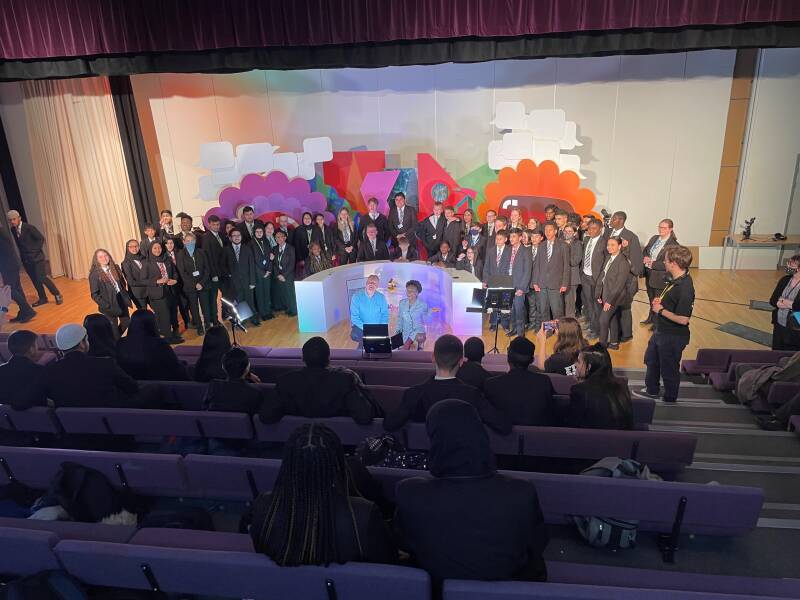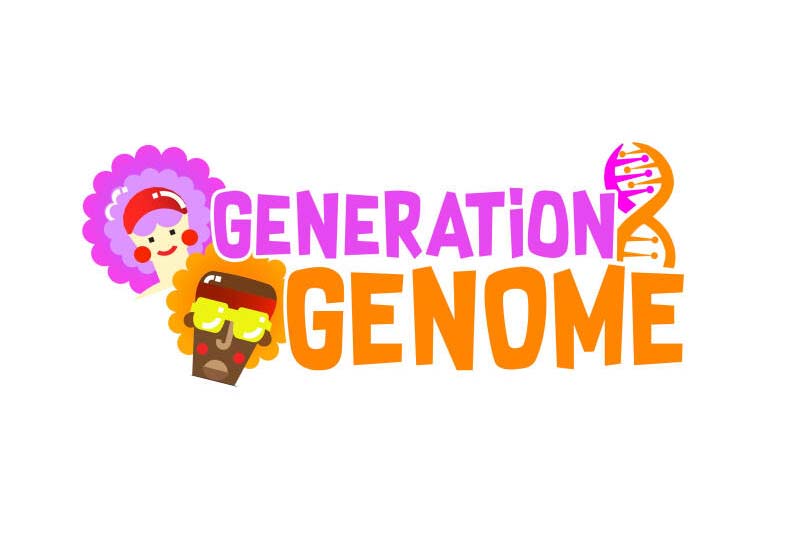Engaging as a multidisciplinary team key to winning British Film Institute television funding.
Written by Jill Hurst
Generation Genome is a six-episode television science series on genetics and genomic health, targeted towards a young audience of thirteen- to sixteen-year-olds attending non-selective schools in economically and socially disadvantaged regions. The main aim of Genome is to communicate science directly from the benches and clinics to this young audience, an audience that will be profoundly impacted by this field as they go through their lives.
The format of Genome is a tale of two halves. In the first half a different theme is communicated using a mix of expert interviews and peer appropriate biographical case studies. This includes ancient DNA, feeding the world, genomic health, genetics and ethics, born this way and fertility and genetic selection. The second half is a Question Time style debate with our target audience in schools around the country. This segment has been branded Group Chat and offers young people the opportunity to ask scholarly and professional experts questions such as is it ethical to screen embryos or is it possible to resurrect dinosaurs.
The series has been made through a triparty agreement between the University of Kent, KMTV and the British Film Institute (BFI). The bid was submitted in December 2019, and it took more than a year for our application to be processed. The Young Audience Content fund heads loved the editorial from the get-go. There was (and is) a vital shortage of quality non-fiction science (and non-science) content programmes for older children. Our struggle, however, centred on convincing the BFI that KMTV should have public service broadcasting status alongside the likes of ITV, BBC, Channel 4 and Channel 5. We needed this to qualify for the fund. KMTV is OFCOM compliant and taps into a wider UK local television network that reaches around 13 million households nationally. Mix this together with the University’s exceptional national networks and partnerships around the country and to us it was a no-brainer.

There were emails and phone calls. We were told yes and then no. We believed so passionately in this project that we lobbied for a meeting. We fought hard to make our case. It was not an easy meeting but to their credit the BFI listened, and we got the green light. Not only were we granted the funding but KMTV was recognised as a primary distribution platform. This all happened during the pandemic. We were at home for most of it getting used to a new way of working. A new world. In a way Genome kept us going. It gave us something to strive for and distracted us from the Covid zombies howling at the door. After the BFI said yes, I switched the computer and phone off and had a little cry.
It’s no exaggeration to say the process of funding applications is exhausting. Especially when so much rests on it. We were committed to the content and our audience but it was also a battle for KMTV’s sustainability. For the creative opportunities it offers young people. For the place its news service should have in the heart of our communities and for its potential role in local democracy and the University’s civic mission.
Generation Genome has taught me a lot about engagement but what I’ve really learned is that successful projects often start with authentic engagement at home. Our team consisted of KMTV colleagues, Outreach and Marketing professionals, Scientists and experts in Finance, Policy, IP, Research Management and Impact. By working together we were able to overcome challenges and succeed. We are fortunate that we have so many talented and skilled people around us. By working and engaging together as multidisciplinary teams, I truly believe anything is possible.
The funding is in but what happens now? Find out in the next blog.

